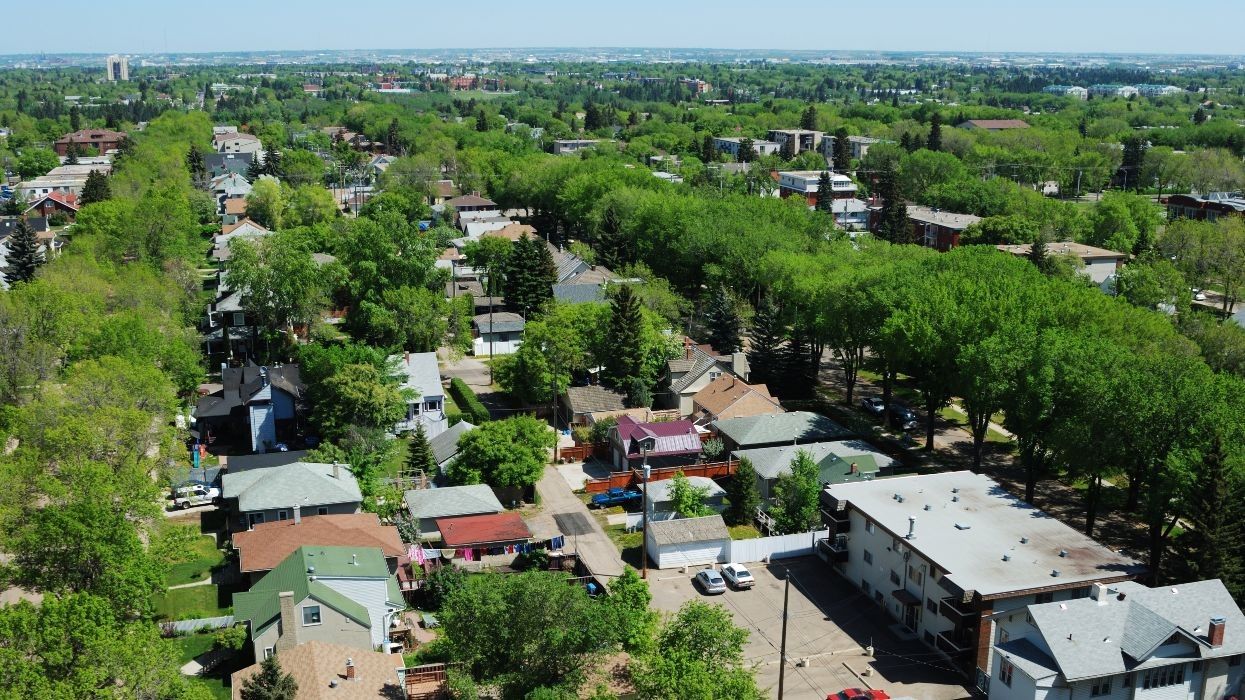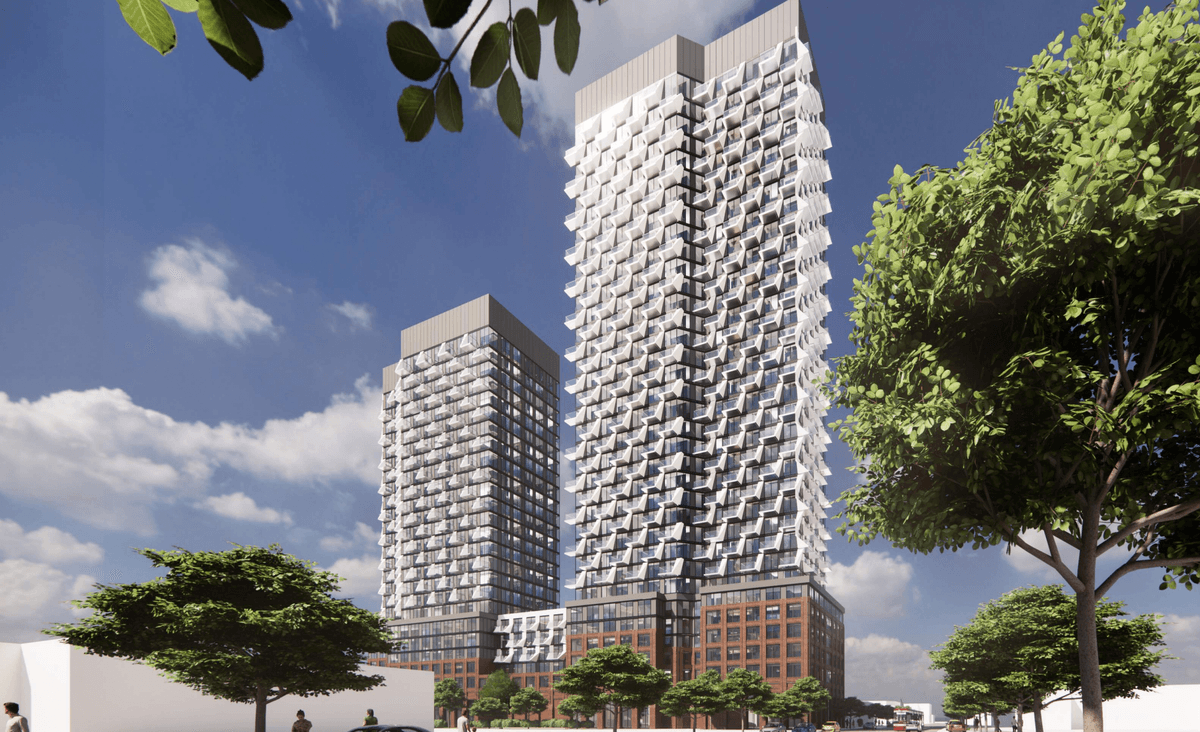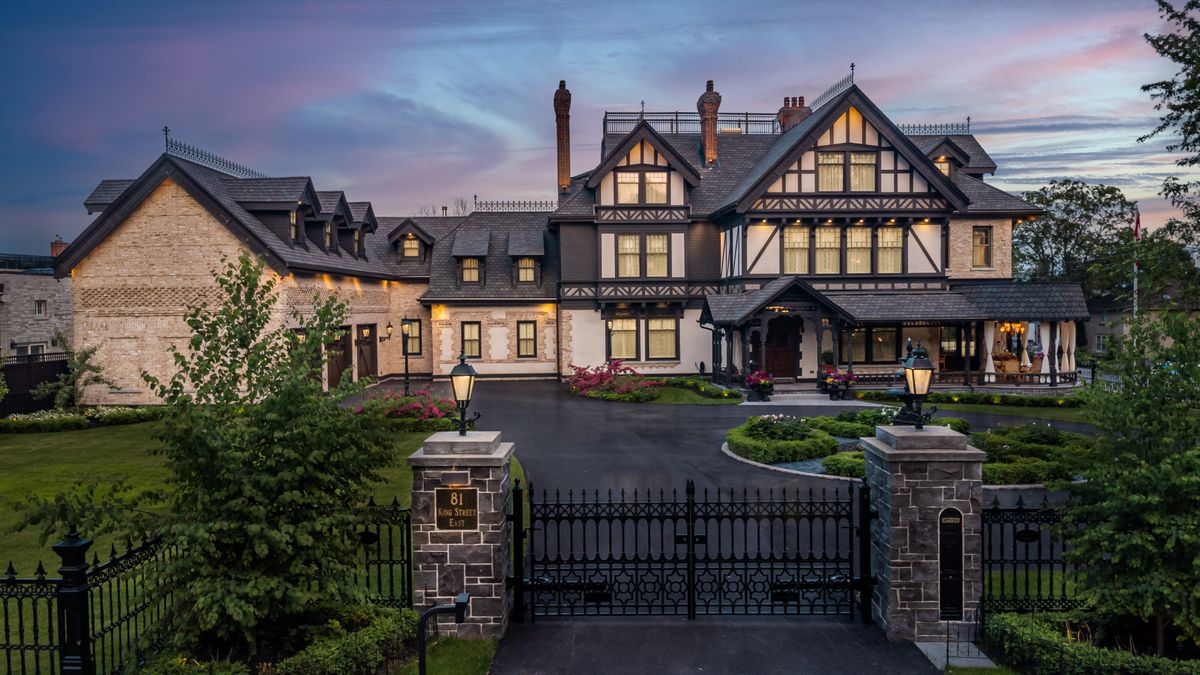With an 11-2 vote, the City of Edmonton ended exclusionary zoning across the city on Monday, completing an overhaul of its zoning bylaw that's been in the works for at least half a decade.
With the change, property owners across Edmonton will be permitted to build up to eight units per residential lot, whether it be a three-storey apartment building, townhouse, rowhouse, or multiplex.
The overhaul is the City's largest since the 1960s and the City is making up for lost time by going beyond what many other municipalities in the country have. In similar changes approved in recent months, Vancouver permitted six units per lot, while Mississauga permitted four.
As part of the overhaul, officially called the Zoning Bylaw Renewal Initiative, the number of different zones in the city has also been cut from 46 to 24, with residential zones cut from 16 to six, while adding in new mixed-use zones that allow for residential and commercial uses on the same lot.
The new zoning bylaw will come into effect on January 1, 2024.
Public hearings were held last week, with the previously scheduled three days of hearings extended to six days and into this week. Nearly 300 people spoke and there were as many opposed to the changes as there were who supported the change.
One notable source of opposition has been the Coalition For Better Infill, which argues that the changes "give huge flexibility to infill developers" and lack environmental standards.
However, Robert Summers, the Director of the School of Urban and Regional Planning and the Academic Director of the Sustainability Council at the University of Alberta, says he believes the change "doesn't magically create new developer profits," and that developers will not be able to demand high prices like some suspect, because of the competitive markets.
"So, what changing the land use bylaw does is simply redistribute the market a bit so we get more infill and less greenfield development — it doesn't magically create more profit," he said in a thread on X. "The new land use bylaw is another modest step forward in allowing our city to evolve. It will result in the continued slow densification of our urban core. It is not radical. It will allow our city to evolve. It's good for Edmonton."
Alongside the zoning bylaw on Monday, Council also approved several related motions to allow further work to be done to address concerns raised during the public hearings.
Those who have been in support of the change include Grow Together Edmonton, a coalition that argues that permitting denser infill housing will add more housing supply that can improve affordability while also reducing Edmonton's greenhouse gas emissions.
"The Zoning Bylaw Renewal is all about enhancing our urban landscape, making it more accessible, sustainable, and responsive to the needs of our diverse community," said Mayor Amarjeet Sohi. "It will encourage innovation, mixed land-use development, and environmental responsibility, all while preserving our unique neighborhoods and heritage. This renewal is a landmark moment in shaping the future of our city — it has the potential to create a comprehensive and progressive blueprint for how Edmonton will grow and evolve."
- In Edmonton, An Industry Eagerly Awaits The Second Coming Of Office Conversions ›
- "A Perfect Storm": Why BC Industrial Real Estate Demand is Migrating to Alberta ›
- Edmonton Approves Sale Of First Parcels Of 200-Acre Exhibition Lands ›
- 3-Day Public Hearings Begin For New Edmonton Districts Plan ›
- City of Edmonton Introduces $39M Infill Infrastructure Fund ›
- Missing Middle Housing In Edmonton Doubles After Zoning Overhaul ›





















